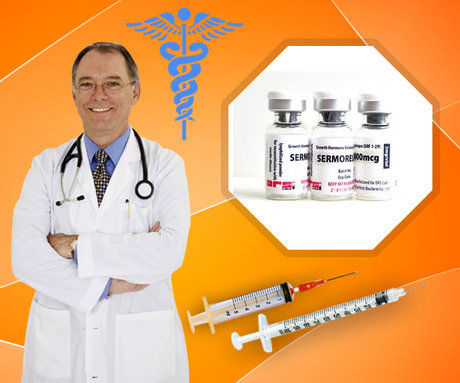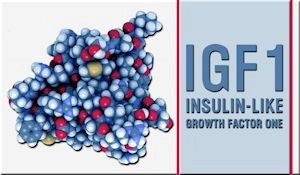Introduction
Late-onset hypogonadism (LOH), also known as age-related hypogonadism, is a clinical and biochemical syndrome associated with advancing age and characterized by a deficiency in testosterone levels. This condition has been increasingly recognized as a significant health concern among American men, particularly due to its potential impact on bone health. As men age, the maintenance of bone density becomes crucial to prevent osteoporosis and reduce the risk of fractures. This article delves into the relationship between LOH and bone health, examining how reduced testosterone levels can affect bone density and increase fracture susceptibility in American males.
Understanding Late-onset Hypogonadism
Late-onset hypogonadism typically manifests in men over the age of 40, with symptoms including decreased libido, erectile dysfunction, fatigue, and mood disturbances. The decline in testosterone levels is a natural part of aging, but when these levels fall below a certain threshold, it can lead to a range of health issues, including those related to bone health. Testosterone plays a critical role in maintaining bone density, and its deficiency can lead to bone loss and increased fragility.
The Role of Testosterone in Bone Health
Testosterone is essential for bone health as it stimulates osteoblasts, the cells responsible for bone formation. It also helps to maintain the balance between bone formation and resorption, a process crucial for bone strength and density. In men with LOH, the reduced levels of testosterone can disrupt this balance, leading to a decrease in bone mineral density (BMD) and an increased risk of osteoporosis.
Impact on Bone Density
Studies have shown that men with LOH have significantly lower BMD compared to their counterparts with normal testosterone levels. This reduction in bone density is particularly pronounced in the lumbar spine and femoral neck, areas critical for overall skeletal integrity. The decline in BMD is gradual but can lead to significant bone loss over time, increasing the risk of developing osteoporosis.
Fracture Risk and Late-onset Hypogonadism
The decrease in bone density associated with LOH directly correlates with an increased risk of fractures. Research indicates that men with low testosterone levels are at a higher risk of experiencing fractures, particularly in the hip and spine. These fractures can have severe consequences, including chronic pain, reduced mobility, and a decreased quality of life. Therefore, identifying and managing LOH early is crucial to mitigate these risks.
Diagnosis and Management
Diagnosing LOH involves measuring serum testosterone levels and assessing clinical symptoms. Once diagnosed, treatment typically involves testosterone replacement therapy (TRT), which can help restore testosterone levels to normal and improve bone health. TRT has been shown to increase BMD and reduce the risk of fractures in men with LOH. Additionally, lifestyle modifications such as regular exercise, a balanced diet rich in calcium and vitamin D, and avoiding smoking and excessive alcohol consumption can further support bone health.
Conclusion
Late-onset hypogonadism poses a significant threat to bone health in American men, leading to reduced bone density and an increased risk of fractures. Understanding the impact of LOH on bone integrity is essential for early diagnosis and effective management. By addressing testosterone deficiency through appropriate interventions, it is possible to mitigate the risks associated with bone loss and improve overall quality of life. As the population ages, the prevalence of LOH is likely to increase, making it imperative for healthcare providers to be vigilant in screening and treating this condition to safeguard the bone health of American males.
Contact Us For A Fast And Professional Response

- Exploring Alternative Therapies for Late-Onset Hypogonadism in American Males [Last Updated On: February 20th, 2025] [Originally Added On: February 20th, 2025]
- Economic Impact of Late-Onset Hypogonadism on American Men's Healthcare [Last Updated On: March 16th, 2025] [Originally Added On: March 16th, 2025]
- Nutrition's Role in Managing Late-Onset Hypogonadism in American Males [Last Updated On: March 17th, 2025] [Originally Added On: March 17th, 2025]
- Managing Late-Onset Hypogonadism: Symptoms, Diagnosis, and Treatment for American Men [Last Updated On: March 18th, 2025] [Originally Added On: March 18th, 2025]
- Late-Onset Hypogonadism: Symptoms, Diagnosis, and Treatment in American Males [Last Updated On: March 19th, 2025] [Originally Added On: March 19th, 2025]
- Genetic Predisposition and Ethnic Impact on Late-Onset Hypogonadism in American Males [Last Updated On: March 19th, 2025] [Originally Added On: March 19th, 2025]
- Late-Onset Hypogonadism: Effects on Male Fertility and Management Strategies [Last Updated On: March 20th, 2025] [Originally Added On: March 20th, 2025]
- Understanding Late-Onset Hypogonadism: Symptoms, Detection, and Management in American Males [Last Updated On: March 20th, 2025] [Originally Added On: March 20th, 2025]
- Late-Onset Hypogonadism: Impact on Muscle Mass in American Men and Management Strategies [Last Updated On: March 20th, 2025] [Originally Added On: March 20th, 2025]
- Managing Late-Onset Hypogonadism: Detection, Lifestyle, and Hormone Therapy in American Men [Last Updated On: March 20th, 2025] [Originally Added On: March 20th, 2025]
- Late-Onset Hypogonadism: Effects on Mood, Energy, and Quality of Life in American Men [Last Updated On: March 20th, 2025] [Originally Added On: March 20th, 2025]
- Advancements in Late-Onset Hypogonadism Treatment: Emerging Therapies and Personalized Medicine [Last Updated On: March 21st, 2025] [Originally Added On: March 21st, 2025]
- Late-Onset Hypogonadism: Symptoms, Diagnosis, and Management Strategies for American Men [Last Updated On: March 21st, 2025] [Originally Added On: March 21st, 2025]
- Exercise Strategies to Combat Late-Onset Hypogonadism in Aging American Males [Last Updated On: March 21st, 2025] [Originally Added On: March 21st, 2025]
- Late-Onset Hypogonadism: Symptoms, Long-Term Effects, and Management in American Men [Last Updated On: March 23rd, 2025] [Originally Added On: March 23rd, 2025]
- Hormone Replacement Therapy for Late-Onset Hypogonadism: Benefits, Risks, and Future Directions [Last Updated On: March 23rd, 2025] [Originally Added On: March 23rd, 2025]
- Exploring the Link Between Late-Onset Hypogonadism and Diabetes in American Males [Last Updated On: March 23rd, 2025] [Originally Added On: March 23rd, 2025]
- Late-Onset Hypogonadism: Understanding TRT, Side Effects, and Alternative Treatments [Last Updated On: March 23rd, 2025] [Originally Added On: March 23rd, 2025]
- Late-Onset Hypogonadism: Symptoms, Monitoring, and Management in American Males [Last Updated On: March 24th, 2025] [Originally Added On: March 24th, 2025]
- Late-Onset Hypogonadism: Impacts on American Men's Relationships and Treatment Options [Last Updated On: March 24th, 2025] [Originally Added On: March 24th, 2025]
- Late-Onset Hypogonadism: Impacts on Cognitive Function and Management Strategies [Last Updated On: March 24th, 2025] [Originally Added On: March 24th, 2025]
- Early Intervention Benefits for Late-Onset Hypogonadism in American Men [Last Updated On: March 24th, 2025] [Originally Added On: March 24th, 2025]
- Late-Onset Hypogonadism in American Males: Symptoms, Diagnosis, and Management Strategies [Last Updated On: March 25th, 2025] [Originally Added On: March 25th, 2025]
- Managing Late-Onset Hypogonadism: Holistic Approaches and Treatment Strategies [Last Updated On: March 25th, 2025] [Originally Added On: March 25th, 2025]
- Understanding Late-Onset Hypogonadism: Diagnosis and Management for American Males [Last Updated On: March 25th, 2025] [Originally Added On: March 25th, 2025]
- Late-Onset Hypogonadism in American Men: Symptoms, Diagnosis, and Management Strategies [Last Updated On: March 25th, 2025] [Originally Added On: March 25th, 2025]
- Late-Onset Hypogonadism in American Men: Symptoms, Diagnosis, and Management Strategies [Last Updated On: March 25th, 2025] [Originally Added On: March 25th, 2025]
- Managing Late-Onset Hypogonadism: Diet and Nutrition Strategies for American Men [Last Updated On: March 25th, 2025] [Originally Added On: March 25th, 2025]
- Late-Onset Hypogonadism: Understanding, Stigma, and Treatment in American Males [Last Updated On: March 25th, 2025] [Originally Added On: March 25th, 2025]
- Late-Onset Hypogonadism: Impact on Sexual Health and Management Strategies for American Men [Last Updated On: March 25th, 2025] [Originally Added On: March 25th, 2025]
- Emotional Journey of American Men with Late-Onset Hypogonadism: Challenges and Support [Last Updated On: March 25th, 2025] [Originally Added On: March 25th, 2025]
- Late-Onset Hypogonadism: Impact on Sleep and Management Strategies for American Men [Last Updated On: March 25th, 2025] [Originally Added On: March 25th, 2025]
- Managing Late-Onset Hypogonadism: Symptoms, Diagnosis, and Treatment in Aging Men [Last Updated On: March 26th, 2025] [Originally Added On: March 26th, 2025]
- Late-Onset Hypogonadism in Aging American Males: Symptoms, Diagnosis, and Multidisciplinary Management [Last Updated On: March 26th, 2025] [Originally Added On: March 26th, 2025]
- Dispelling Myths: Understanding and Managing Late-Onset Hypogonadism in American Men [Last Updated On: March 26th, 2025] [Originally Added On: March 26th, 2025]
- Understanding and Managing Late-Onset Hypogonadism in American Men: Symptoms, Diagnosis, and Treatment [Last Updated On: March 26th, 2025] [Originally Added On: March 26th, 2025]
- Community Support Enhances Life Quality for Men with Late-Onset Hypogonadism [Last Updated On: March 26th, 2025] [Originally Added On: March 26th, 2025]
- Untreated Late-Onset Hypogonadism: Health Risks and Importance of Early Intervention in US Men [Last Updated On: March 27th, 2025] [Originally Added On: March 27th, 2025]
- Financial Burden of Late-Onset Hypogonadism in American Men: Costs and Management [Last Updated On: March 27th, 2025] [Originally Added On: March 27th, 2025]
- Advanced Technologies Revolutionizing Late-Onset Hypogonadism Diagnosis in American Males [Last Updated On: March 27th, 2025] [Originally Added On: March 27th, 2025]
- Understanding Late-Onset Hypogonadism: Diagnosis and Management for American Men [Last Updated On: March 27th, 2025] [Originally Added On: March 27th, 2025]
- Cultural Perceptions and Management of Late-Onset Hypogonadism in American Men [Last Updated On: March 27th, 2025] [Originally Added On: March 27th, 2025]
- Understanding and Managing Late-Onset Hypogonadism in American Men: Symptoms, Diagnosis, and Treatment [Last Updated On: March 27th, 2025] [Originally Added On: March 27th, 2025]
- Late-Onset Hypogonadism: Impacts on American Men's Careers and Cognitive Function [Last Updated On: March 28th, 2025] [Originally Added On: March 28th, 2025]
- Managing Late-Onset Hypogonadism: Preserving Independence in American Men [Last Updated On: March 28th, 2025] [Originally Added On: March 28th, 2025]
- Advocating for Better Late-Onset Hypogonadism Care: A Guide for American Men [Last Updated On: March 28th, 2025] [Originally Added On: March 28th, 2025]
- Stress Exacerbates Late-Onset Hypogonadism in American Males: A Holistic Approach [Last Updated On: March 28th, 2025] [Originally Added On: March 28th, 2025]
- Legal Rights and Workplace Accommodations for American Men with Late-Onset Hypogonadism [Last Updated On: March 28th, 2025] [Originally Added On: March 28th, 2025]
- Managing Late-Onset Hypogonadism: Symptoms, Diagnosis, and Treatment for American Men [Last Updated On: March 28th, 2025] [Originally Added On: March 28th, 2025]
- Late-Onset Hypogonadism: Diagnosis, Treatment, and Management Strategies for American Men [Last Updated On: March 29th, 2025] [Originally Added On: March 29th, 2025]
- Holistic Management of Late-Onset Hypogonadism: Integrating Mental Health Support [Last Updated On: March 30th, 2025] [Originally Added On: March 30th, 2025]
- Late-Onset Hypogonadism: Family Support and Management Strategies for American Males [Last Updated On: March 30th, 2025] [Originally Added On: March 30th, 2025]
- Navigating Insurance Coverage for Late-Onset Hypogonadism in American Men [Last Updated On: April 1st, 2025] [Originally Added On: April 1st, 2025]
- Managing Late-Onset Hypogonadism: Lifestyle Strategies for American Men [Last Updated On: April 2nd, 2025] [Originally Added On: April 2nd, 2025]
- Late-Onset Hypogonadism: Peer Support's Role in Enhancing Men's Health and Well-being [Last Updated On: April 5th, 2025] [Originally Added On: April 5th, 2025]
- Late-Onset Hypogonadism in American Males: Symptoms, Treatment, and Lifestyle Management [Last Updated On: April 5th, 2025] [Originally Added On: April 5th, 2025]
- Late-Onset Hypogonadism: Impact on Self-Esteem and Treatment Options for American Men [Last Updated On: April 5th, 2025] [Originally Added On: April 5th, 2025]
- Managing Late-Onset Hypogonadism: Stress Reduction Strategies for American Men [Last Updated On: April 6th, 2025] [Originally Added On: April 6th, 2025]
- Late-Onset Hypogonadism: Social Impacts and Management Strategies for American Men [Last Updated On: April 7th, 2025] [Originally Added On: April 7th, 2025]
- Late-Onset Hypogonadism in American Men: Advocacy and Management Strategies [Last Updated On: April 8th, 2025] [Originally Added On: April 8th, 2025]
- Research Advances in Late-Onset Hypogonadism: Diagnosis, Treatment, and Safety in the US [Last Updated On: April 9th, 2025] [Originally Added On: April 9th, 2025]
- Nutritionists' Role in Managing Late-Onset Hypogonadism Through Diet and Key Nutrients [Last Updated On: April 9th, 2025] [Originally Added On: April 9th, 2025]
- Managing Late-Onset Hypogonadism: Symptoms, Screening, and Treatment for American Men [Last Updated On: April 9th, 2025] [Originally Added On: April 9th, 2025]
- Late-Onset Hypogonadism: Symptoms, Diagnosis, and Treatment in American Males [Last Updated On: April 10th, 2025] [Originally Added On: April 10th, 2025]
- Exercise as a Key Strategy for Managing Late-Onset Hypogonadism in American Men [Last Updated On: April 10th, 2025] [Originally Added On: April 10th, 2025]
- Managing Late-Onset Hypogonadism: Strategies for American Men's Mental Health [Last Updated On: April 11th, 2025] [Originally Added On: April 11th, 2025]
- Late-Onset Hypogonadism: Emotional Impacts and Management Strategies for American Men [Last Updated On: April 13th, 2025] [Originally Added On: April 13th, 2025]
- Endocrinologists' Vital Role in Managing Late-Onset Hypogonadism in American Men [Last Updated On: April 14th, 2025] [Originally Added On: April 14th, 2025]
- Managing Late-Onset Hypogonadism: A Guide for American Men's Healthcare Navigation [Last Updated On: April 14th, 2025] [Originally Added On: April 14th, 2025]
- Late-Onset Hypogonadism: Understanding, Diagnosing, and Treating Age-Related Testosterone Decline [Last Updated On: April 15th, 2025] [Originally Added On: April 15th, 2025]
- Understanding and Managing Late-Onset Hypogonadism in Aging American Men [Last Updated On: April 16th, 2025] [Originally Added On: April 16th, 2025]
- Late-Onset Hypogonadism: Symptoms, Diagnosis, and Comprehensive Management Strategies [Last Updated On: April 17th, 2025] [Originally Added On: April 17th, 2025]
- Navigating Late-Onset Hypogonadism: Community Resources and Support for American Men [Last Updated On: April 17th, 2025] [Originally Added On: April 17th, 2025]
- Therapists' Crucial Role in Managing Late-Onset Hypogonadism in American Males [Last Updated On: April 18th, 2025] [Originally Added On: April 18th, 2025]
- Holistic Management of Late-Onset Hypogonadism in American Men: Diet, Exercise, and More [Last Updated On: April 18th, 2025] [Originally Added On: April 18th, 2025]
- Managing Late-Onset Hypogonadism: Symptoms, Diagnosis, and Treatment Options for American Men [Last Updated On: April 19th, 2025] [Originally Added On: April 19th, 2025]
- Late-Onset Hypogonadism: Impact on American Men's Professional Performance and Management Strategies [Last Updated On: April 19th, 2025] [Originally Added On: April 19th, 2025]
- Managing Late-Onset Hypogonadism: Lifestyle Strategies for American Men's Health [Last Updated On: April 20th, 2025] [Originally Added On: April 20th, 2025]
- Understanding Late-Onset Hypogonadism: Symptoms, Diagnosis, and Management in Aging Men [Last Updated On: April 20th, 2025] [Originally Added On: April 20th, 2025]
- Understanding Late-Onset Hypogonadism: Symptoms, Causes, and Treatment in Aging Men [Last Updated On: April 21st, 2025] [Originally Added On: April 21st, 2025]

















